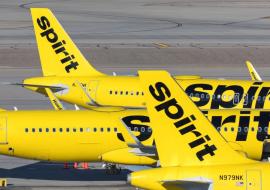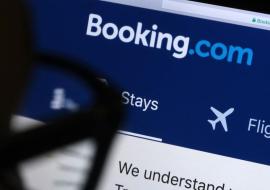Agents Unfazed by Amazon's New OTA Venture

Agents and industry executives were largely unfazed by the news that Amazon is poised to begin selling hotels online as early as Jan. 1, noting OTAs have yet to find a strategy to compete with the personalized service that traditional agents offer their clients.
“Ultimately, travel is all about personal connections – something online travel sites have never been able to replicate,” said John Lovell, president of Travel Leaders Franchise Group, Leisure Group and Vacation.com. “Our travel agents – be they Travel Leaders, Vacation.com, Cruise Specialists or within any part of our Travel Leaders Group family – maintain their competitive edge because of the personalized, tailor-made travel planning and consultation they provide, and by seeking the best value for each client.”
Lovell noted that Travel Leaders arms its agents with an arsenal of attractive rates, and features and amenities to provide them with a competitive edge. “With access to Travel Leaders Group’s Worldwide Hotel Program and Select Hotels and Resorts program, each providing unique offerings, our travel agents are able to provide highly competitive property rates and select VIP amenities such as complimentary breakfast and Wi-Fi, early check-in and late check-out, and room upgrades,” he said.
Nicole Mazza, chief marketing officer for Travelsavers and NEST, noted that consortia offer a host of benefits that help agents distinguish themselves from OTAs. “Because of our relationships with many of the leading travel suppliers in the industry, we are able to offer our affiliates exclusive value opportunities, rates and benefits,” she said. “And to get the attention of current and prospective clients, we arm our affiliates with a turnkey marketing program, powerful technology and one-on-one personal support with a dedicated business analyst. It’s a powerful combination that is a win-win for everyone involved: the agent, the client and the supplier.”
Such rank-and-file travel agents as Judy Nidetz of Travel Experts in Chicago, meanwhile, are unruffled by the news that Amazon is getting into the travel business. “There are so many online booking sources for travel and they tend to come and go very quickly,” she said. “This is just one more large company like Costco that wants to get into our business with the hopes of earning easy revenue by having their customers point, click and book, without them having to supply any support or knowledge.”
For Nidetz, Amazon poses no threat to her business. “My clients call or email me to book their travel because they want guidance based on my personal knowledge and experience,” she said. “They need me to help them figure out what is the best fit, manage their budgets and, in many cases, help to figure out where to go on vacation.”
OTAs can provide none of those services. “An online booking engine can’t ask clients what they like to do when they travel, if they have any special needs, if they can help recommend a private guide or exceptional bespoke experience while they are at the destination,” Nidetz said. “An online booking engine can’t help them in case of a problem or contact the general manager on property to let them know about a special celebration or family gathering. An online booking engine isn’t available to help in case of a snowstorm, an ash cloud or a transit strike”.
While Claire Schoeder of Century Travel in Atlanta believes Amazon and OTAs present a threat to those agents who compete primarily on price, it’s a whole other story for agents with more affluent client bases. “Many luxury clients do not have the time or interest to shop around on the Internet to save a few dollars and sacrifice the service they get from a good agent,” she said.
In Schoeder’s view, a lack of service has been driving consumers who’ve used OTAs back into the hands of traditional agents. “In the past few years retail travel agents have seen an upswing in sales as people get tired of the Internet—especially when a problem occurs and they do not get the personal attention they need from the OTA,” she said.
Over the years, successful agents have moved away from the order-taking scenario to business models that place a heavy emphasis on personal service. “We cultivate a wide range of personal connections with hoteliers and tour operators throughout the world,” said Schoeder. “OTAs can offer the hotels, but will not make a phone call or send an email with details about a special occasion that might get the traveler something extra. In many instances the customer service department of an OTA is not equipped to handle anything other than a basic problem.”
In the final analysis, Lovell notes that agents face competitive challenges on a daily basis, and more times than not overcome those challenges. “If you recall, many wrongly predicted the Internet would spell the demise of the travel agency community,” he said. “In fact, the Internet allows our agents to do their jobs more efficiently and effectively. More importantly, there is an over-abundance of information available to consumers; what they want and need is expert guidance and the best overall value for their investment.”
Despite an ever-growing number of OTAs entering the marketplace, traditional travel agents continue to thrive. “There are many OTAs and ‘deal’ sites that have been around for years and despite it, the travel agent distribution channel continues to be number one, especially when it comes to higher yields,” said Mazza. “Many suppliers and consumers alike see the tremendous value and expertise travel agents offer, and that’s not changing.”
Source: Travel Pulse














